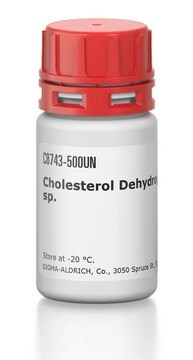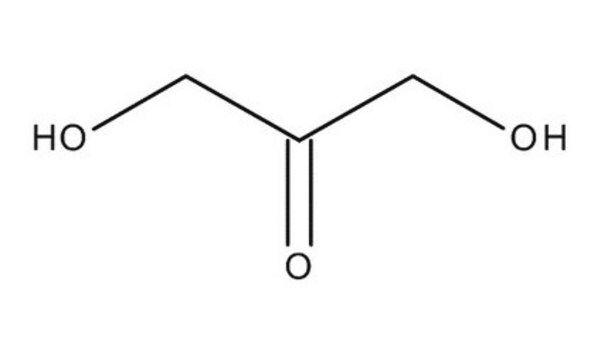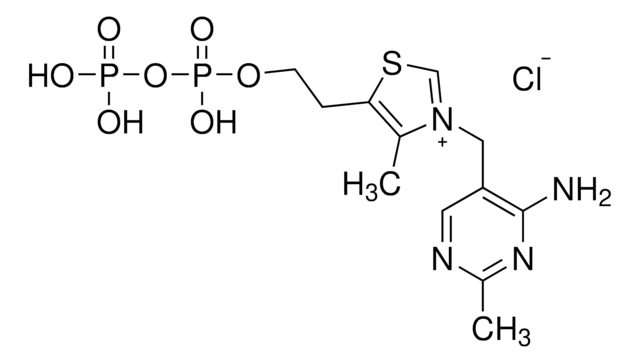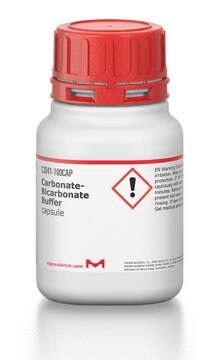G3512
Glycerol Dehydrogenase from Cellulomonas sp.
lyophilized powder, ≥50 units/mg protein
Synonyme(s) :
Glycerol:NAD+ 2-oxidoreductase
About This Item
Produits recommandés
Source biologique
bacterial (Cellulomonas spp.)
Forme
lyophilized powder
Activité spécifique
≥50 units/mg protein
Poids mol.
~390 kDa
Composition
Protein, ≥60% biuret
Température de stockage
−20°C
Description générale
Application
Actions biochimiques/physiologiques
Propriétés physiques
Michaelis constants : 1.1 x 10¯2M (Glycerol), 8.9 x 10¯5M (NAD+)
Structure : 10 subunits (42,000) per mol of enzyme
Inhibitors : p-Chloromercuribenzoate, o-phenanthroline, monoiodoacetate, heavy metal
ions (Co++, Ni++, Cu++, Zn++, Cd++)
Optimum pH : 10.0 – 10.5
Optimum temperature : 50°C
pH Stability : pH 7.5 – 10.5 (25°C, 20hr)
Thermal stability : below 55°C (pH 7.5, 15min)
Substrate specificity : This enzyme has the highest specificity for glycerol and 1,2-propanediol, and also oxidizes glycerol-α-monochlorohydrin, ethylene
glycol and 2,3-butanediol. The oxidative reaction is stimulated by K+, NH+4 and Rb+.
Définition de l'unité
Forme physique
Mention d'avertissement
Danger
Mentions de danger
Conseils de prudence
Classification des risques
Resp. Sens. 1
Code de la classe de stockage
11 - Combustible Solids
Classe de danger pour l'eau (WGK)
WGK 3
Point d'éclair (°F)
Not applicable
Point d'éclair (°C)
Not applicable
Équipement de protection individuelle
Eyeshields, Gloves, type N95 (US)
Certificats d'analyse (COA)
Recherchez un Certificats d'analyse (COA) en saisissant le numéro de lot du produit. Les numéros de lot figurent sur l'étiquette du produit après les mots "Lot" ou "Batch".
Déjà en possession de ce produit ?
Retrouvez la documentation relative aux produits que vous avez récemment achetés dans la Bibliothèque de documents.
Les clients ont également consulté
Notre équipe de scientifiques dispose d'une expérience dans tous les secteurs de la recherche, notamment en sciences de la vie, science des matériaux, synthèse chimique, chromatographie, analyse et dans de nombreux autres domaines..
Contacter notre Service technique












